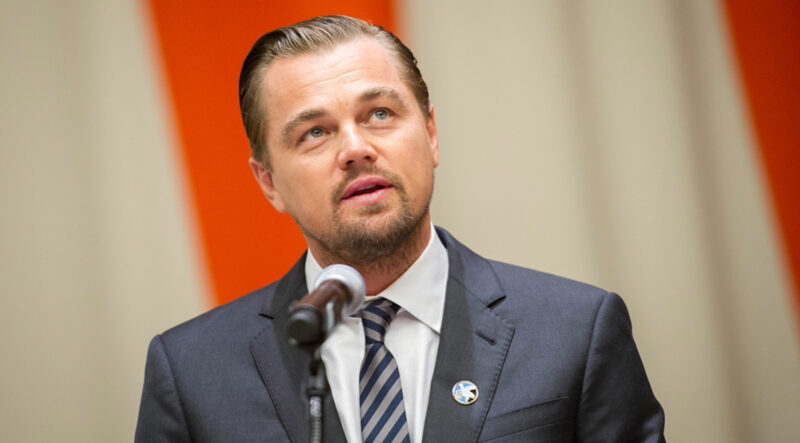Leonardo DiCaprio needs an education about salmon farming
BC’s salmon farmers and First Nations invite Hollywood star Leonardo DiCaprio to tour their operations after he repeats false information about salmon aquaculture.
By Fabian Dawson
SeaWestNews
Hollywood star Leonardo DiCaprio, needs to get educated about salmon farming before endorsing the “false narrative” that is being fed to him by anti-aquaculture activists, say British Columbia’s salmon farmers and their First Nation partners.
DiCaprio, an Oscar winning actor, in a recent Instagram post repeated the false claim that the Government of Canada is walking back on its promise to phase out open-net pen salmon farms, from coastal BC waters by 2025.
Fisheries Minister Diane Lebouthillier and her officials have repeatedly stressed that there is no such promise and that the 2025 date is to come up with a Transition Plan for the sector.
But despite these continued assertions from the government, anti-salmon farming activists have been spinning the same falsehoods as part of their campaign to raise funds from the public and get support from ill-informed celebrities.
In response to DiCaprio’s post, the BC Salmon Farmers Association (BCSFA) has extended an invitation to the actor to meet with its members and their First Nations partners, and tour their farms.
“Unfortunately, the information that was provided to you by Wild First (an anti-salmon farming activist group) is incorrect…we welcome you to come to BC and tour our farms and meet our farmers,” responded BCSFA executive director Brian Kingzett to DiCaprio’s post.
“It’s important to understand our operations before believing what an activist group tells you and using your incredibly large platform to ask for our sector to be shut down. Additionally, scientific consensus is that salmon farms are not impacting wild salmon populations and growing Atlantic salmon in pacific waters is not a risk,” he said.
“Mr DiCaprio has never been on a BC salmon farm or met with the First Nations whose communities have negotiated agreements with the sector and provide environmental oversight.
“It is ironic to see the white rich privilege on full display as Wild First supported by a rich Vancouver Sport fish lodge owner, employs a rich Hollywood actor to use his massive platform in an uneducated way to oppose this industry which is supported by science and is taking pressure off wild fisheries.”
The effort, to rope in DiCaprio’s endorsement, is part of the activist campaign to spread the 2025-ban myth and other falsehoods about the province’s salmon farming sector, which support thousands of jobs and $1.2 billion in economic activity annually.
The campaign comes as the government considers extending the existing salmon farming licences in BC, pending the Transition Plan for the sector.
So far at least 10 government studies and a range of court rulings have stated that the salmon farms have less than a minimal impact on migrating wild stocks.
But bowing to the demands of the activists in exchange for their votes, the Liberal government has already shut down 40% of salmon farms since 2020, increasing carbon emissions and wiping out jobs that are the lifeblood of rural, coastal and Indigenous communities.
Before the shutdowns the salmon farming sector was the largest agri-food export in BC. The sector employed approximately 6,500 people, produced close to 500 million salmon meals per year, received inputs from over 1,000 individual suppliers and had an economic value of $2 billion.
Currently in BC, all existing salmon farms are supported by the First Nations communities that they operate in.
One of them is the Kitasoo Xai’Xais First Nation, which began farming and processing salmon in the late 1980’s.
“Organizations like Wild First Canada pull activists and the public in with misinformation and get big names to stand behind them, with zero accountability for how this could devastate the progress Indigenous Peoples have made to attain food affordability, job security, and independence as a nation,” the Kitasoo Xai’Xais First Nation said in a statement.
“Public figures like Leonardo DiCaprio may falsely believe they are doing the right thing by putting their names behind this cause. But in reality, aligning with campaigns without an understanding of the deep-seated implications does more harm than good. In the case of banning open-net pen fish farming, they directly threaten the rights, livelihood, and very fabric of First
Nations communities, such as Kitasoo Xai’xais. This goes so far beyond endorsing a commercial brand; their actions jeopardize the well-being of Indigenous Peoples and break Canada’s promise to First Nations.
“Decisions about our territories should not be made or influenced by external parties, be it the Government of Canada privileged self-serving CEOs, or Hollywood actors. The Kitasoo Xai’xais people have stewarded these territories for centuries, guarding our lands, waters, and communities since time immemorial.
“We, the Kitasoo Xai’xais Nation, are salmon stewards and salmon farmers, and we will not be governed by external influences who have excluded Coastal First Nations from writing their own narratives and determining their own futures,” the statement said.
The Coalition of First Nations for Finfish Stewardship (FNFFS) was also critical of DiCaprio’s social media post, urging the actor to come to BC and educate himself about salmon farming in the province.
(Image of Leonardo DiCaprio at the UN)

